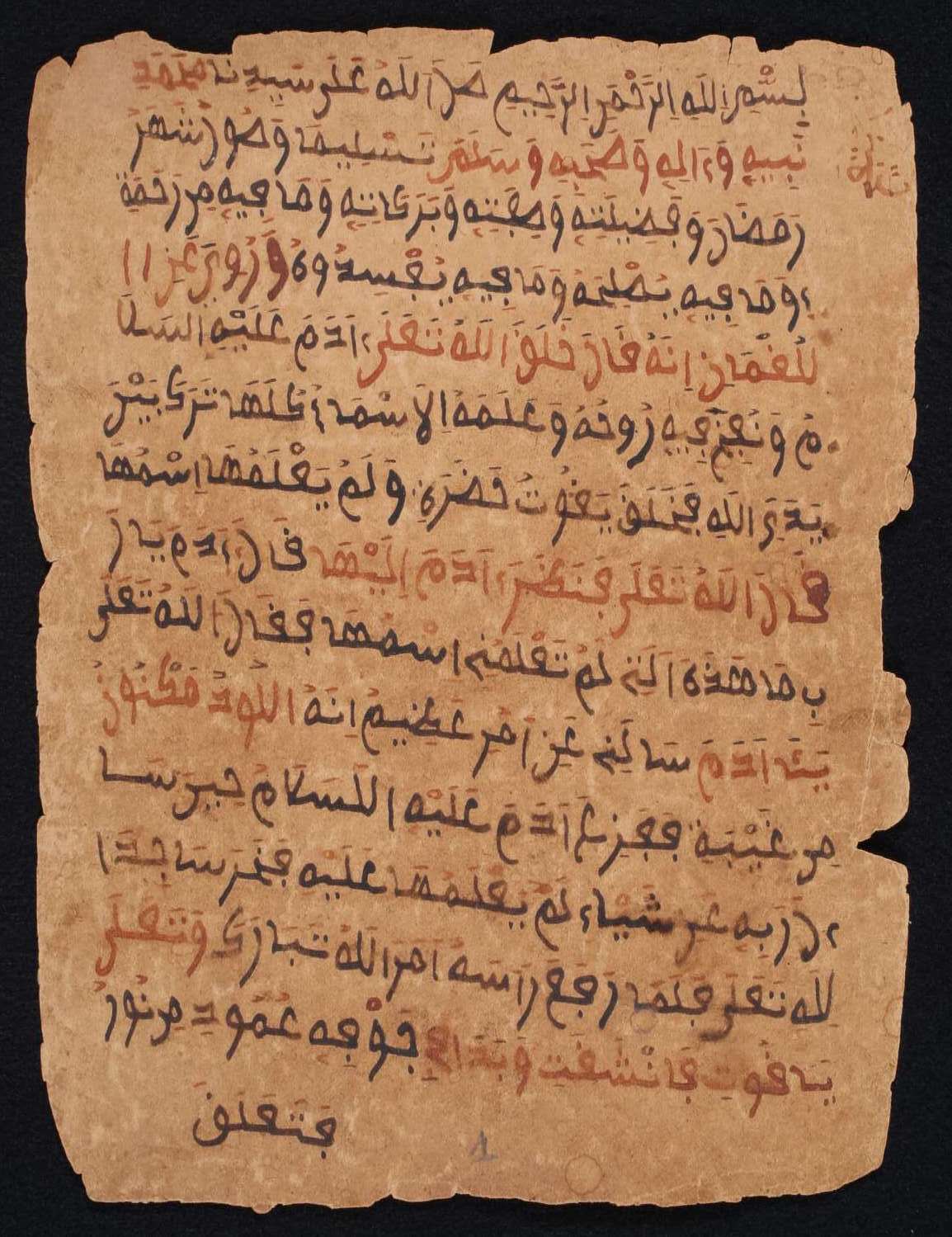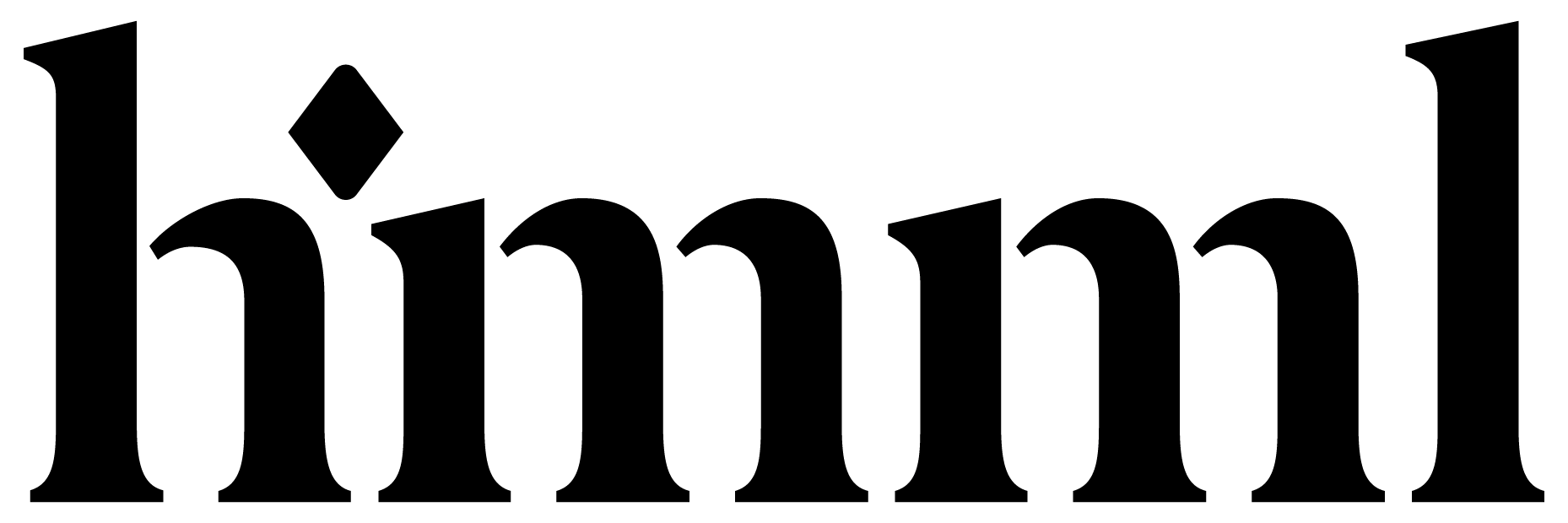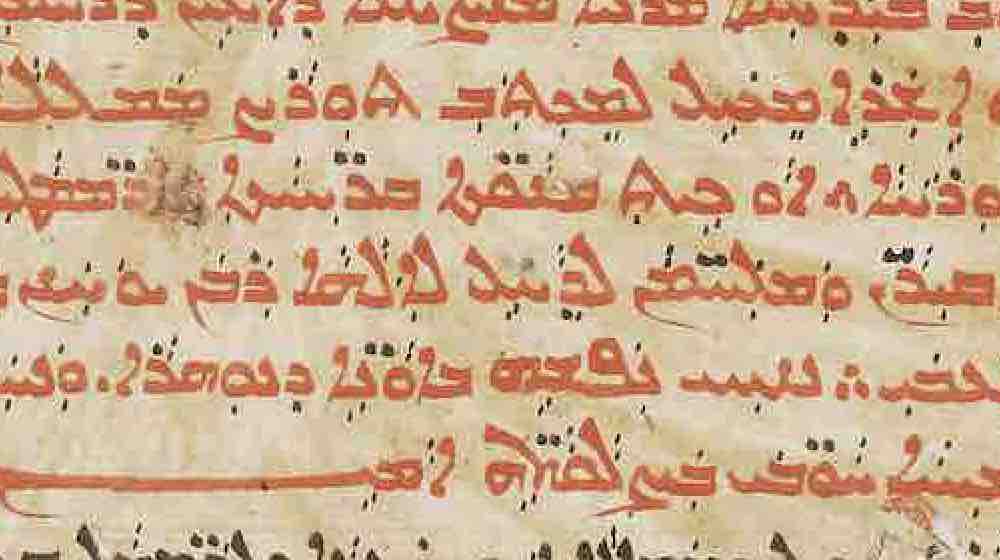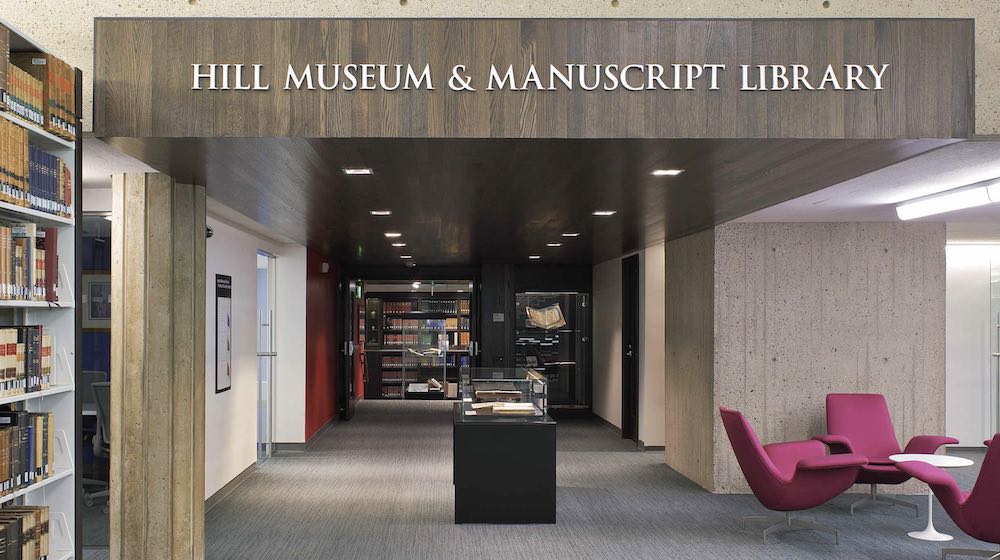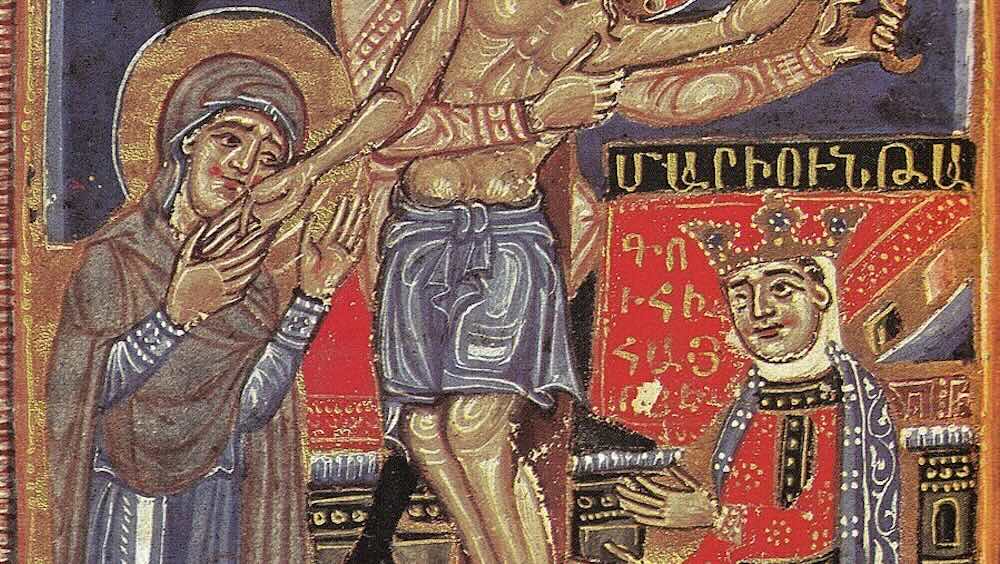ʻumar Al Turūdī’s List Of Unreliable Books
ʻUmar al-Turūdī’s List of Unreliable Books
September 1, 2022This story is part of an ongoing series of editorials in which HMML curators and catalogers examine how specific themes appear across HMML’s digital collections. From the Islamic collection, Dr. Paul Naylor shares this story about Banned Books.
ʻUmar ibn Muḥammad ibn Abī Bakr al-Turūdī, also known as al-Bikārī, was a scholar from Kebbi, present-day northern Nigeria. He authored the well-known poem Muḥajjalat al-gharrāʼ fī madḥ al-nabī —an enlargement of al-Būṣīrī’s famous devotional poem on the Prophet’s mantle (al-Burdah)—and an enlargement of Kaʻb ibn Zuhayr's poem, Bānat Suʻād, on the same subject.
However, al-Turūdī’s most original contribution to literature was his list of 53 “unreliable” books. In his words, these were books “which one should not study or devote time to, due to most of what is in them being weak, false, and the hadith and historical events mentioned in them being fabrications.” The list was further promoted by Muhammad Bello, the second ruler of Sokoto; Bello replicated it in his history of the Hausa region, Infāq al-maysūr.
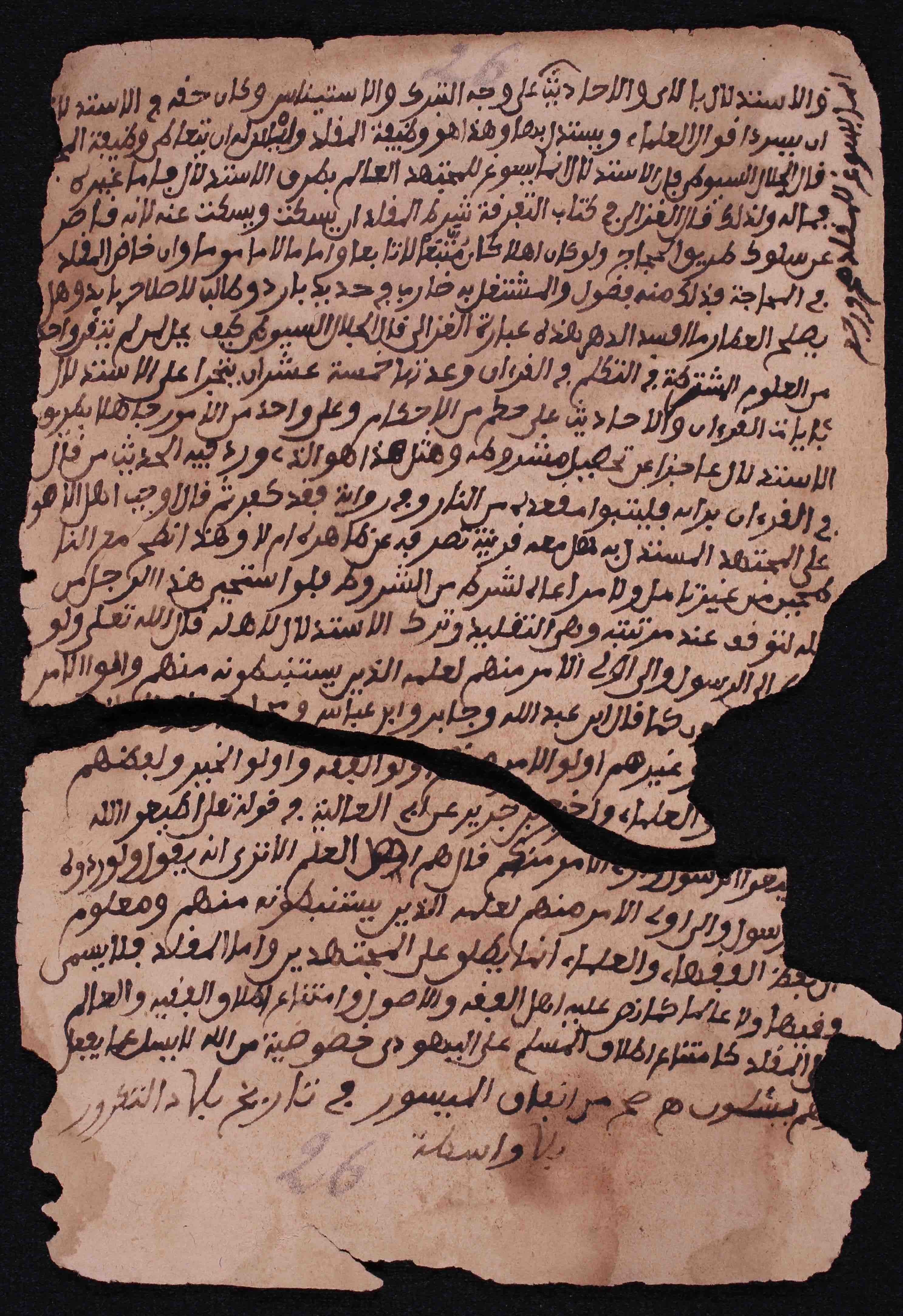
As catalogers of West African manuscripts at HMML, Dr. Ali Diakite and myself have now fully cataloged two of Timbuktu’s family libraries: the Aboubacar Ben Said Library (SAV ABS) and the Bibliothèque de Manuscrits al-Imam Essayouti (ELIT ESS). With these 10,000+ manuscripts now available online in HMML Reading Room, let’s see how faithfully scholars and bibliophiles adhered to this eighteenth-century list of “do-not-buys”!
Browsing the “Unreliable Books”
The first four items on al-Turūdī’s list concern the Waṣīyah or “Last Testament” genre of text, in which Prophet Muhammad gives (apocryphal) advice to various companions. Both the Aboubacar Ben Said Library and the Essayouti Library contain examples of the Waṣīyah of ʻAlī (SAV ABS: 13 copies; ELIT ESS: 2 copies) and Muʻādh (SAV ABS: 23 copies; ELIT ESS: 7 copies), while the Aboubacar Ben Said Library also includes the other two censured Waṣīyah texts: The Prophet’s advice to Abū Hurayrah (3 copies) and The Prophet’s advice to his daughter Fāṭimah (2 copies).
From al-Turūdī’s perspective, it only gets worse from here. Of the 53 works he censures, at least 16 are represented in one or both libraries. The following table provides the information for the remaining items:
| Title | Copies in SAV ABS | Copies in ELIT ESS |
|---|---|---|
| Inshiqāq al-Qamr (Story of Muhammad splitting the moon) | 1 | 0 |
| Ahwāl al-Qiyāmah (The horrors of Judgment Day) | 0 | 5 |
| Kalām al-bahāʼim (On the origin of birds and beasts) | 3 | 1 |
| Kitāb al-murshid, also known as Arbaʻah jawāhir banī Ādam (The four treasures of man) | 28 | 8 |
| Arbaʻīn ḥadīth (Forty hadith) | 16 | 9 |
| Qiṣṣat al-ghulām (Story of a youth and the Prophet, also known as Story of the Israelites' child) | 13 | 3 |
| Qiṣṣat al-qāḍī maʻ al-sāriq (Story of the judge and the thief) | 2 | 0 |
| Munājāt Mūsá (Moses’ dialogues with God) | 3 | 7 |
| Kitāb al-Bājī, which is probably the text Qawāʻid al-Bājī (The rules of al-Bājī) | 7 | 4 |
| Kitāb al-Muntaqá (On chains of authority), also known as al-Muntaqá min al-rawḍah | 0 | 2 |
| Faḍāʼil Ramaḍān (On the benefits of Ramadan) | 31 | 2 |
| Naṣīḥat Iblīs (The advice of Iblīs) | 4 | 0 |
There is evidence that other items on al-Turūdī’s list are probably represented in the two library collections as well:
- Ghazwat Khaybar (The raid of Khaybar) is perhaps the text that HMML identified as an “Account of the raids of ʻAlī ibn Abī Ṭālib,” of which two copies exist at the Aboubacar Ben Said Library (SAV ABS 03887 and SAV ABS 04121).
- Kitāb al-rīḥ al-aḥmar (Book of the red wind) is mentioned or listed as a text’s title in four manuscripts at the Bibliothèque de Manuscrits al-Imam Essayouti.
- Likewise, six manuscripts at the Aboubacar Ben Said Library discuss how to use al-Duʻāʼ al-mubārak (The blessed supplication), probably related to another item on al-Turūdī’s list: Qiṣṣat al-du`āʼ al-mubārak, or “Story of the blessed supplication.”
Al-Turūdī also lists Shams al-maʻārif, a well-known handbook of esoteric science attributed to the Egyptian Aḥmad al-Būnī. This text has risen to occult status across the Muslim world today. Although neither of the two collections includes a copy of this text, both include fāʼidahs (texts to bring benefit) said to be taken from this book. And one manuscript, ELIT ESS 04023, lists Shams al-maʻārif in an inventory of books and their purchase prices, demonstrating that copies of the text were circulating in the region.
What We Learn
Comparing al-Turūdī’s list to the contents of these Timbuktu libraries allows us to make several conclusions and observations.
First, the date of Bello’s book (1812 CE) allows us to state with confidence that these works predate the nineteenth century and had likely been staples of basic Islamic education for some time before that.
Comparing al-Turūdī’s list to the library collections also demonstrates how stable the West African tradition of Muslim learning was. Many of these books had no established author or title, and yet they seem to have been read (and criticized) over a wide geographical area. We also find that the Aboubacar Ben Said Library contains a greater share of these “unreliable” books than the Essayouti Library, confirming the impression that the latter, being the library connected to Timbuktu’s Djinguereber mosque, honed more closely to orthodox texts and tastes.
We do not know for certain whether al-Turūdī’s list was known in Timbuktu, though a copy of the Infāq al-maysūr exists in Timbuktu’s Aḥmad Baba Institute, and a fragment has been found in the Mamma Haidara Library. If al-Turūdī’s list was common knowledge, the books in these two libraries indicate that his recommendation was not widely adopted. And now that we have the titles for all these “unreliable” books, we will be keeping an eye out for the rest of them as we continue our cataloging work!
